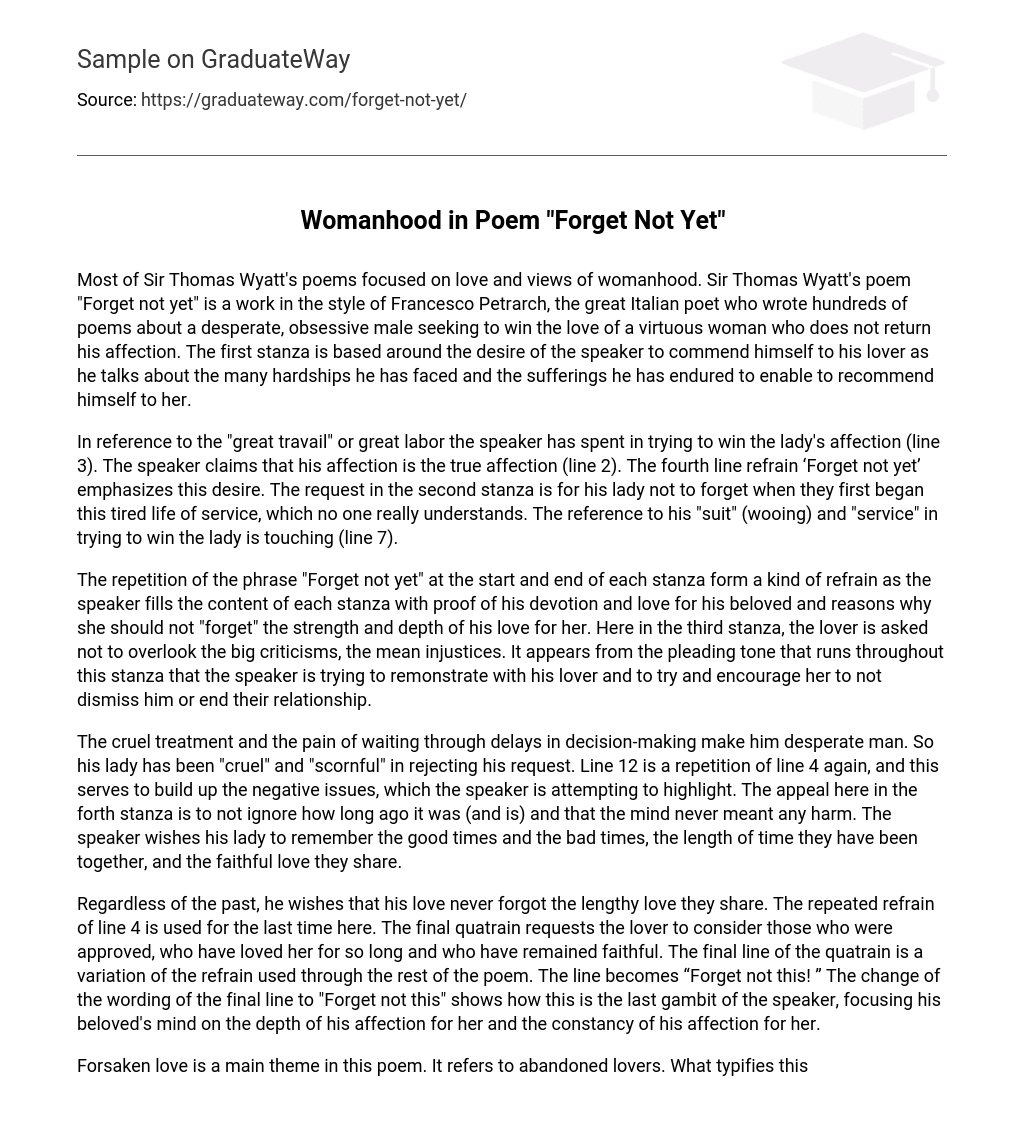Most of Sir Thomas Wyatt’s poems focused on love and views of womanhood. Sir Thomas Wyatt’s poem “Forget not yet” is a work in the style of Francesco Petrarch, the great Italian poet who wrote hundreds of poems about a desperate, obsessive male seeking to win the love of a virtuous woman who does not return his affection. The first stanza is based around the desire of the speaker to commend himself to his lover as he talks about the many hardships he has faced and the sufferings he has endured to enable to recommend himself to her.
In reference to the “great travail” or great labor the speaker has spent in trying to win the lady’s affection (line 3). The speaker claims that his affection is the true affection (line 2). The fourth line refrain ‘Forget not yet’ emphasizes this desire. The request in the second stanza is for his lady not to forget when they first began this tired life of service, which no one really understands. The reference to his “suit” (wooing) and “service” in trying to win the lady is touching (line 7).
The repetition of the phrase “Forget not yet” at the start and end of each stanza form a kind of refrain as the speaker fills the content of each stanza with proof of his devotion and love for his beloved and reasons why she should not “forget” the strength and depth of his love for her. Here in the third stanza, the lover is asked not to overlook the big criticisms, the mean injustices. It appears from the pleading tone that runs throughout this stanza that the speaker is trying to remonstrate with his lover and to try and encourage her to not dismiss him or end their relationship.
The cruel treatment and the pain of waiting through delays in decision-making make him desperate man. So his lady has been “cruel” and “scornful” in rejecting his request. Line 12 is a repetition of line 4 again, and this serves to build up the negative issues, which the speaker is attempting to highlight. The appeal here in the forth stanza is to not ignore how long ago it was (and is) and that the mind never meant any harm. The speaker wishes his lady to remember the good times and the bad times, the length of time they have been together, and the faithful love they share.
Regardless of the past, he wishes that his love never forgot the lengthy love they share. The repeated refrain of line 4 is used for the last time here. The final quatrain requests the lover to consider those who were approved, who have loved her for so long and who have remained faithful. The final line of the quatrain is a variation of the refrain used through the rest of the poem. The line becomes “Forget not this! ” The change of the wording of the final line to “Forget not this” shows how this is the last gambit of the speaker, focusing his beloved’s mind on the depth of his affection for her and the constancy of his affection for her.
Forsaken love is a main theme in this poem. It refers to abandoned lovers. What typifies this poem is the traditional regretful sentiment of lost love mingled with elements of cynicism and even anger. Wyatt’s love poems have a bitter edge, which makes his work distinct from that of his predecessors, like Petrarch, and his successors, like Shakespeare. Petrarch’s sonnets have elegance, Shakespeare’s have wit, and Wyatt’s have dynamism and vitality.





